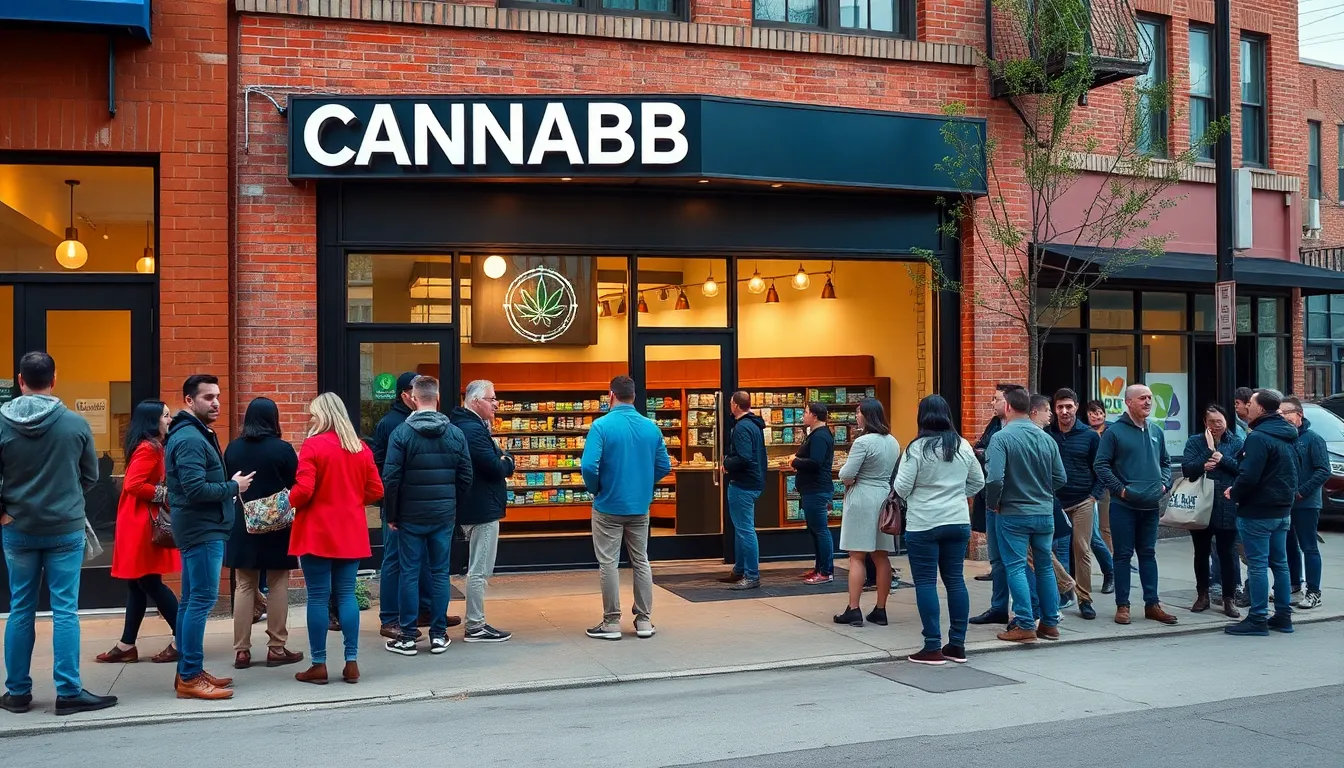Minnesota is on the brink of a significant shift in its cannabis landscape as the state prepares to open dispensaries for adult-use marijuana. With legalization making waves across the country, many are eager to know when they can access these new retail outlets. The anticipation is palpable as residents and enthusiasts alike await the official launch of dispensaries.
As the state finalizes regulations and prepares for a smooth rollout, potential consumers are left with questions. Understanding the timeline for dispensary openings not only helps residents plan but also sheds light on the evolving cannabis market in Minnesota. This article explores the key dates and factors influencing when these dispensaries will finally welcome customers.
Table of Contents
ToggleOverview of Cannabis Legislation in Minnesota
Minnesota legalized adult-use cannabis in May 2023, allowing adults aged 21 and older to possess and use cannabis. The legislation establishes a regulated framework for the production, distribution, and retail sales of cannabis. The Cannabis Act sets specific limits on possession, cultivation, and usage, maintaining public safety while providing access to legal cannabis.
Significant aspects of the legislation include:
- Possession Limits: Adults can possess up to 1.5 ounces of cannabis in public and up to 5 ounces at home.
- Cultivation Rights: Starting in 2025, individuals may cultivate up to eight plants for personal use.
- Regulation Authority: The Minnesota Cannabis Authority oversees the implementation and enforcement of the regulations.
- Licensing for Retailers: Entities must obtain licensed approval to operate dispensaries, ensuring compliance with state standards.
Community engagement occurs through local governments, allowing them to regulate dispensary locations and hours of operation. This local control fosters harmonious integration within existing neighborhoods and addresses community concerns about cannabis sales.
As the rollout progresses, timelines for dispensary openings depend on the approval of retailer licenses and the establishment of operational guidelines. The state anticipates that authorized dispensaries may start opening in the summer of 2024, with exact dates contingent upon the regulatory process.
Timeline for Dispensary Openings

Minnesota’s dispensary openings follow a structured timeline, crucial for understanding when retail outlets will begin operating. Anticipation builds as the state prepares to implement its regulatory framework.
Key Dates to Remember
- May 2023: Minnesota legalized adult-use cannabis, marking a significant milestone.
- Summer 2024: Expected start of dispensary openings, subject to retailer license approvals.
- 2025: Personal cultivation rights begin for adults aged 21 and older, allowing individuals to grow their own cannabis plants.
- Continuous Updates: Ongoing announcements from the Minnesota Cannabis Authority will provide additional clarity on specific dispensary launch dates.
Phased Implementation
- Initial Phase: Early dispensaries may open first, focusing on established medical cannabis retailers transitioning to adult-use sales.
- Expansion Phase: New entrants will join as licensing processes conclude, aiming for market diversity.
- Local Regulation: Local governments will determine the exact locations and operational hours for dispensaries, ensuring community input is considered throughout the rollout.
Current Status of Dispensaries
Minnesota’s dispensary landscape is evolving rapidly following the legalization of adult-use cannabis. The focus now shifts to the licensing process and the planned locations for these dispensaries.
Licensing Process
The licensing process for dispensaries in Minnesota involves multiple steps. Retailers must apply for a license through the Minnesota Cannabis Authority. Criteria for approval include background checks, financial stability, and compliance with state regulations. Established medical cannabis retailers have priority in this process. They can transition to adult-use sales upon receiving their new licenses. New entrants will follow, depending on the completion of their applications and the meeting of regulatory requirements. Updates regarding licensing approvals will be provided regularly by the Minnesota Cannabis Authority to ensure transparency.
Locations of Planned Dispensaries
Locations for planned dispensaries are subject to local government regulations and community input. The Minnesota Cannabis Authority aims for a diverse range of dispensary sites to ensure accessibility. Potential areas include urban centers and rural communities, accommodating varying populations. Each municipality has the authority to dictate operational hours and specific zoning rules. Local consultations play a critical role in determining final locations, addressing both community concerns and market needs. Residents can expect a comprehensive list of approved dispensary locations as the timeline progresses toward summer 2024.
Impact on Communities
The opening of cannabis dispensaries in Minnesota is poised to significantly affect local communities. Economic growth, job creation, and health considerations will be key areas of impact.
Economic Benefits
Economic advantages stem from multiple sources. Dispensaries create jobs in retail, security, and administrative roles. For example, employing around 200 individuals per dispensary increases local employment rates. Additionally, increased tax revenue from cannabis sales can support community projects. In states with established cannabis markets, tax revenues often exceed hundreds of millions annually. Local businesses can also benefit from increased foot traffic, with consumers likely to patronize nearby shops and restaurants. This creates a ripple effect throughout the local economy, promoting growth and sustainability.
Health and Safety Considerations
Health and safety implications are crucial as dispensaries open. Regulations ensure products meet quality and safety standards, reducing potential risks associated with unregulated cannabis use. For instance, lab testing for contaminants ensures consumer safety and product reliability. Further, local dispensaries can play a role in public health education, providing information on responsible usage and potential risks. Community engagement will focus on addressing concerns about impaired driving and youth access, fostering a responsible approach to cannabis in the area. Public awareness campaigns can mitigate these issues, promoting a safer environment as cannabis becomes more accessible.
The opening of dispensaries in Minnesota marks a significant shift in the state’s cannabis landscape. As the summer of 2024 approaches anticipation continues to build among residents eager to explore legal cannabis options. The phased rollout will ensure a smooth transition from medical to adult-use sales while adhering to state regulations and community needs.
With local governments involved in the process the focus remains on creating accessible and responsible retail environments. The economic benefits promise to enhance local communities through job creation and increased tax revenue. As Minnesota prepares for this new chapter the emphasis on safety and education will play a crucial role in shaping a positive cannabis culture.



